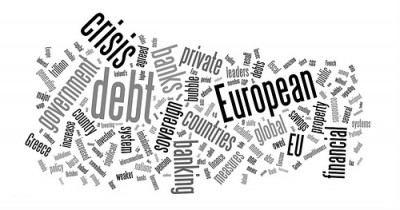Unexpected news came from Scandinavia last week. Sweden will have lower corporate tax rate than Slovakia! Last Thursday Swedish government announced its intention to lower tax rate from 26,3% to 22% in order to „strengthen climate for investments and growth“ in the country. Well, even Scandinavian socialism is not what it used to be.
Truly shocking news from Southern Europe: Greece will need a third bailout. According to the country’s representative in the negotiations of Troika, Greece managed to meet only 22% of commitments planned for last year. Athens object, that because of the deepening recession they will need another two years to push through entire austerity package. Irritated lenders are starting to lose patience and require consistent implementation of reforms. Will Greece get its yet another bailout package? Soap opera continues…
Italian Prime Minister Mario Monti in turn said that his country will not accept additional terms associated with the possible help of new ECB bond buyig program. As quoted by his spokesman: “Italy would not accept conditions beyond those already agreed and which we are already respecting.”
In the meantime, Mr. Barroso finally found his wooden iron. In his speech during European Parliament’s session he said he was not calling for a “superstate”, but rather “a democratic federation of nation states that can tackle our common problems, through the sharing of sovereignty”.
So euro should be finally out of danger and crises soon over… At least it seems to be Brussel’s point of view. EU pledges up to 700 million euros in aid to Egypt showing how European governments are trying to build ties with newly elected establishment. When the time come, we can only hope they will bail us back out.
However, the most important event on the old continent was undoubtedly the D-Day – awaited decision of the German Constitutional Court on the ESM. As is good habit in Europe these days, verdict was: “yes, but …”. According to the Constitutional Court ESM does not violate the German constitution and the fiscal compact does not undermine the sovereignty of the Bundestag’s budgetary issues. And now the most important footnotes:
- German involvement is limited to 190 billion euro and can’t be raised without Bundestag’ s consent
- German goverment can rule on withdrawing from ESM
- ESM can’t borrow directly from ECB
Consequences? Current ESM capacity is far from enough for a possible rescue of Italy and Spain, which may represent a significant obstacle. The finding of the Constitutional Court may also require adjustment of the ESM treaty and thus s re-ratification. For time being, burden of rescuing troubled countries will probably have to beared by the ECB.
Let’s also look at the other side of the ocean. Just a week after the ECB announced its new program of bond purchases, the U.S. Federal Reserve started third round of quantitative easing. New unlimited QE 3 aka QEternity came just two months before the presidential elections. As noted by Republican Congressman Raul Labrador, FOMC decision “is going to sow some growth in the economy, and the Obama administration is going to claim credit.” Presidential candidate Mitt Romney called the Federal Reserve’s third round of quantitative easing another “bailout” for President Barack Obama’s economy. What does the new QE means for economy? Every month in 2013 the Fed will increase its balance sheet by $85 billion, consisting of $40 billion in MBS, and $45 billion in 10-30 year Treasurys, or the natural monthly supply of longer-dated issuance. The Fed will therefore monetize roughly half of the US budget deficit in 2013. Putting it all together, the Fed’s balance sheet will increase from just over $2.8 trillion currently, to $4 trillion on December 25, 2013. In the same timeframe it could shoot gold prices at least to $ 2,250 an ounce and WTI oil to over $ 150 per barrel.
What’s next? As the paper of the Federal Reserve Bank of New York indicates, thanks to the unlimited QE, any following FOMC decision will lack the element of surprise, which has so far contributed to strong growth in equity markets. Rising prices of production inputs will also gradually eliminate the margins regardless of income and corporate cash flow will get to zero.
China continues to accumulate its gold reserves. Now it is safe to say that this year alone China imported a larger stock of gold than the official reserves of the ECB. How much gold China already owns? Estimates are 6,000 tonnes, but no official figures are available so far. With regard to annual purchases in the amount of about 1,000 tons is likely that China has already overtaken Germany to become the second largest holder of gold in the world. Another interesting fact is that for the first time in the history China imported twice as much gold as bought U.S. government bonds. The question is whether country prepares to introduce yuan as the new reserve currency.



















No comments
Be the first one to leave a comment.